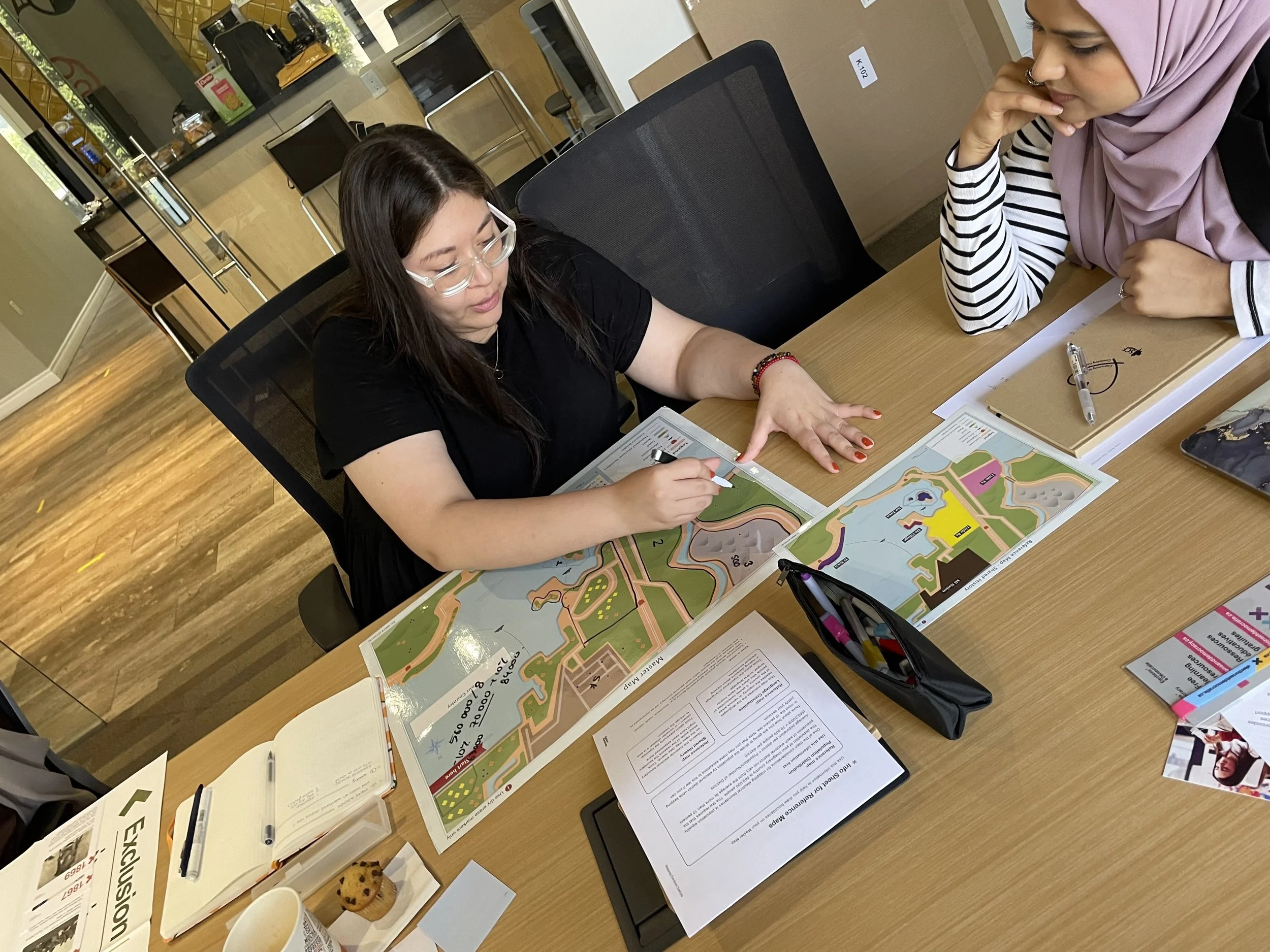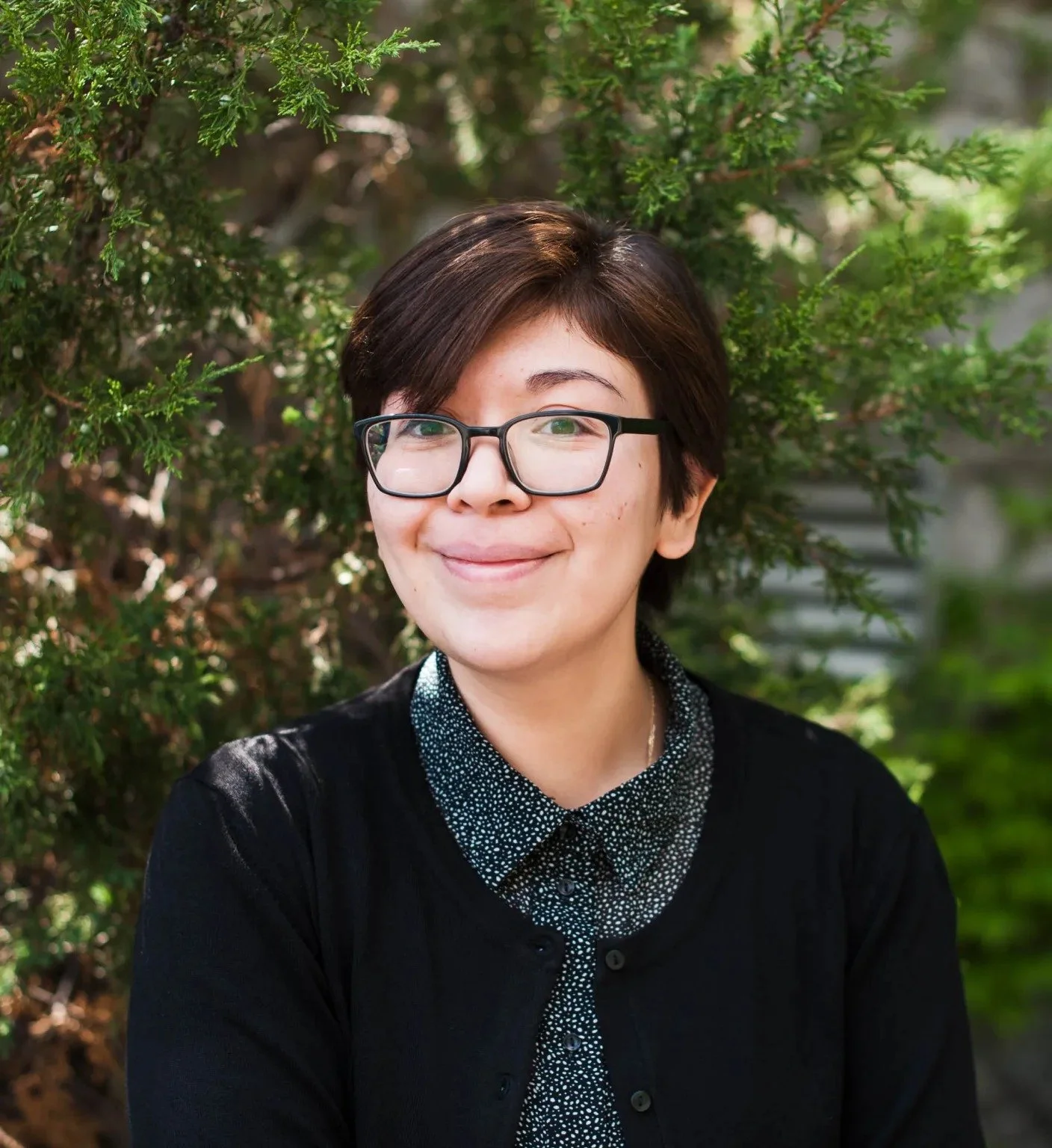Un-Belonging: Finding Strength in the In-Between
Mayela Lozano - February 2025
Photo by Hannah Busing on Unsplash
The first time I experienced snow in Montréal was in late October of 2018. I had just commuted from university and arrived at the St. Michel métro station. When I stepped outside, I could see the small white dots all around me—on the floor, hanging in the air, only visible through the streetlamp. It looked exactly as it did on TV, in the movies I watched as a child. But the feeling I was supposed to be feeling, a sense of wonder to this new experience, escaped me.
Looking back at that time, at my 25-year-old self, I think that is when it happened. A feeling that had been growing in my chest since I arrived in August 2018, finally settled in my lungs, pulsating slowly. It was inside of me, lodged, all me but with a life of its own. Foreign.
As the months continued into my first Canadian winter, I could feel it expand a bit more, taking more and more space inside my lungs, my chest, my heart. It felt to feed from my experiences. A panic attack after giving my first presentation in front of my peers. Crying on a couch at the Peer Support office because I was rejected from being part of a team for one of my classes. Anxiety all over my body as my boyfriend, now husband, struggled to find a job, and I could see the savings we had worked so hard for depleting fast, so fast.
“The idea of something surrounding me, of my very foundation being precarious, made the feeling grow faster. I couldn't even trust the floor. I couldn't even trust myself.”
As bad as all of that was, all my experiences didn't even come close to the utter panic I felt the first time I encountered ice. "Be careful. There might be black ice," my co-worker Jessica said one evening after work, as we were making our now even more precarious way down the hill from our office. The idea of something surrounding me, of my very foundation being precarious, made the feeling grow faster. I couldn't even trust the floor. I couldn't even trust myself. The feeling continued to warp my experiences in Canada. When I finally was able to go to therapy, for the three sessions my student insurance covered, I was able to put a name to that feeling: Un-belonging.
It’s not as if I hadn't felt like I didn't belong before. It was just exponential. Overwhelming.
I look back at those three sessions as what they were: lifesavers. It was like the therapist put me on floaties, gave me a pat on the head, and threw me back into the ocean, saying “off you go.” They were enough, enough for me to make it through the winter and into the spring of 2019.
The only thing that helped the feeling feel smaller were some glimpses I got occasionally. A scent of spices in the air. An accent in the street, like mine. Both fading away as fast as they came. When I went back home to Mexico, exactly a year after my first flight to Canada, that was the feeling I was looking for. Instead, as many before me, I was struck with a now familiar feeling. Un-belonging. I walked the same streets, ate the same food, slept on the same bed, talked with the same people. yet. I felt foreign in my own land. It didn't feel the same anymore. The warmth of belonging was no more.
“I felt foreign in my own land. It didn't feel the same anymore. The warmth of belonging was no more.”
Mayela Lozano - WICE Program Event
I wondered. would I be chasing that feeling forever, then? So close to the tips of my fingers, but always just a little out of reach? Belonging is what I needed, and what seemed so difficult to feel. In Mexico and in Canada.
It is complicated for me to look at that time in my life. Painful. The feeling comes back sometimes. But I now have the tools and resources to confront it. I’ve had the privilege of going to therapy at the time I needed it the most, thanks to the offering of services on a sliding scale by a wonderful psychotherapist, who I owe so much to. I made friends, who had gone through the same things I have and who showed me how lovely it is to be vulnerable and to be seen. I was even able to start reading new books again, thanks to the absolute magic that is libraries. We were able to find jobs that have supported us, that value our experience outside of Canada.
My experiences since I immigrated have helped me realize the importance of having the resources—emotional, financial, relative support—to be able to go through dark and unsettling times. To come out the other side not the same, not as bright-eyed as I once was, and yet hopeful and grateful.
That is what moved me to be part of the Women in Civic Engagement program. I recognize that I was privileged through my experiences. I want everyone that has made the journey here to have the opportunity, the resources, to not go through the darkness alone. And I know that is only possible if systemic change happens. If equity becomes a priority at every level of institutions and government.
I might still not feel like I belong. Not in Mexico, and not in Canada. But maybe I just belong a bit to both, and that’s okay. Canada is my home now, and I want to make it a good place for all the good people here. It is our shared responsibility to work together to make this an equitable, welcoming place for everyone, where everyone feels like they belong.
“I might still not feel like I belong. Not in Mexico, and not in Canada. But maybe I just belong a bit to both, and that’s okay.”
Mayela Lozano
Mayela Lozano (she/her) is from Monterrey, Mexico. She arrived in Canada in August 2018. Belonging isn’t always instant—it’s a journey. Mayela obtained her MA in Counselling Psychology at McGill University. She is currently the Program Coordinator and EDIIA Specialist at SEASONOVA, a social enterprise that offers consulting services from an EDIIA and GBA Plus lens. Mayela is passionate about mental health and EDIIA, and hopes society can work together to bring equity to reality for all.



